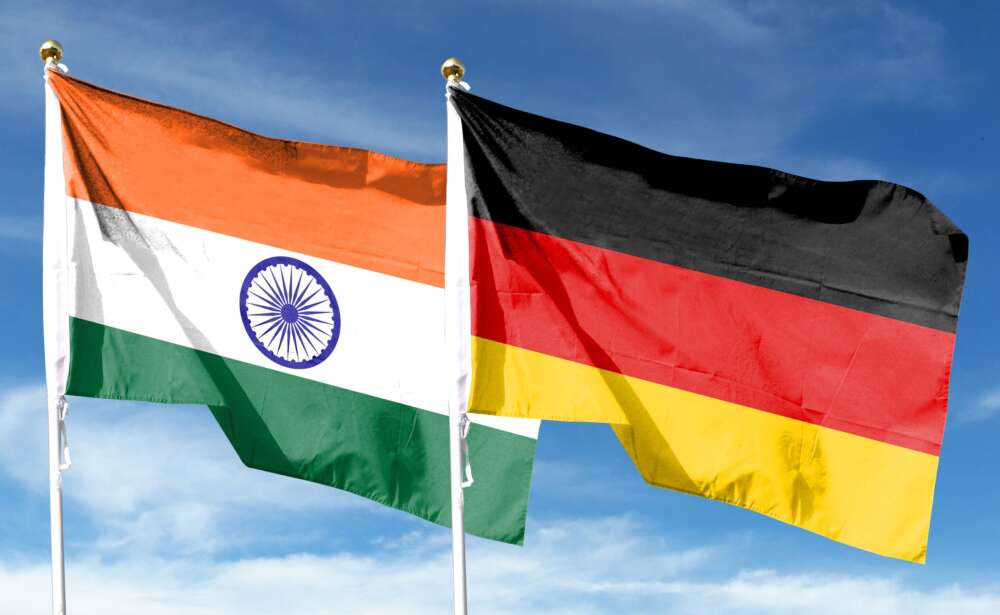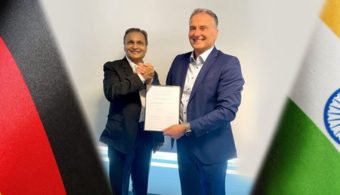As Germany ushers in a new government under the recently concluded coalition agreement, the document not only charts Berlin’s domestic and European course but also signals a continued and deepening commitment to global partnerships — with a clear mention of India. Against the backdrop of shifting geopolitical landscapes and emerging economic alignments, the new government formation is being touted as a new chapter in Indo-German relations.
A Trusted Partnership in a Changing World
The coalition treaty explicitly recognizes India as “the world’s largest democracy and a partner with shared values,” highlighting Germany’s intent to intensify cooperation across political, economic, and civil society domains. This renewed focus comes at a time of global uncertainty, with geopolitical tensions, rejigged supply chain order, and climate crises reshaping international alliances.
“We can expect the new German government to be very active and very committed to its India-Germany bilateral relationship,” noted Dr. Philipp Ackermann, Germany’s Ambassador to India and Bhutan. “The most significant point is that this government wants to enhance cooperation with India and strengthen bilateral ties,” adding that the incoming government specifically highlights skilled labour migration and defence cooperation as focus areas.
Economic Ties Set for Expansion
Germany continues to be India’s largest trading partner within the European Union, with bilateral trade reaching $26.10 billion in the last fiscal year. Over 1,800 German companies are active in India, spanning sectors like automotive engineering, renewables, smart manufacturing, and chemical industries.
The coalition agreement’s emphasis on pursuing “ambitious free trade agreements with democratic partners” provides new momentum for the long-discussed EU-India Free Trade Agreement. Ambassador Ackermann emphasized, “I think there is a dedication, commitment to the FTA between India and Europe. Europe has shown quite a remarkable moment of strength. And I would say that the visit of the President of Commission and 21 commissions to Delhi was one of these remarkable events where the commission has shown that they shifted their attention towards India, I think we’ve never seen such a visit before to any other country,” said during an interview to the Indian media.
Driving the Sustainability Agenda Together
The Indo-German Green and Sustainable Development Partnership (GSDP), launched in 2022, continues to anchor the bilateral cooperation on climate action and sustainability. With Germany ramping up its international climate finance commitments and India’s ambitious renewable energy targets, both nations are aligned in their pursuit of a green transition.
Strategic Outlook: Beyond Economics
Germany’s strategic outlook, as outlined in the coalition agreement, places India at the heart of its Indo-Pacific engagement. This includes strengthening collaboration in global governance platforms like the G20 and the United Nations, where both nations advocate for democratic values, inclusivity, and multilateralism.
The upcoming Indo-German Intergovernmental Consultations (IGC) are expected to further flesh out these strategic priorities. High-level political and business dialogues are being planned, reinforcing the partnership at both government and industry levels.
Boosting Mobility: Eased Visa Rules for Indian Travelers
In another significant development reflecting the growing warmth of Indo-German ties, Germany has recently eased the Schengen visa process for Indian travelers. Under the revised guidelines, frequent Indian visitors — especially those with a history of holding and complying with Schengen visa requirements — will now be eligible for multi-entry visas with extended validity of up to five years. This step is designed to facilitate smoother travel for business, tourism, academic exchanges, and cultural collaborations.
The move is expected to significantly benefit Indian professionals, students, entrepreneurs, and artists who engage regularly with Germany, making cross-border mobility easier and more predictable. It also aligns well with the broader strategic ambition of both countries to deepen people-to-people connections — a key pillar of the bilateral partnership alongside political and economic cooperation.
Indian Travelers to Germany On The Rise
There is a marked growth in people-to-people contact as Germanyis replacing other European countries as a top choice for Indian travellers surpassing traditional favourites like France and Switzerland. According to the latest figures by the German Tourism Board, Indian applications for travel to Germany grew by nearly 19% in the first quarter of 2025 — the highest among all Schengen countries. This surge not only highlights Germany’s appeal as a cultural and tourist destination but also points to the success of initiatives aimed at easing visa processes and promoting Germany’s diverse experiences to Indian visitors.
A Partnership with Growing Dimensions
In today’s interconnected world, the Indo-German partnership continues to evolve beyond traditional diplomatic and economic cooperation. Whether through expanding trade, joint climate action, fostering innovation, or facilitating easier mobility and cultural exchange, both nations are actively investing in building lasting connections across multiple sectors.
With the new German government signalling clear intent to deepen these ties and more Indians choosing Germany as their destination of choice, the relationship stands poised for an even broader engagement.
Sunanda Rao Erdem is the Co-Founder of Thedialog.net and Founder & CEO of Seraphim Communications, a strategic PR firm focused on the Indo-German space. Previously, she was Managing Director at Munich-headquartered CNC Communications.



